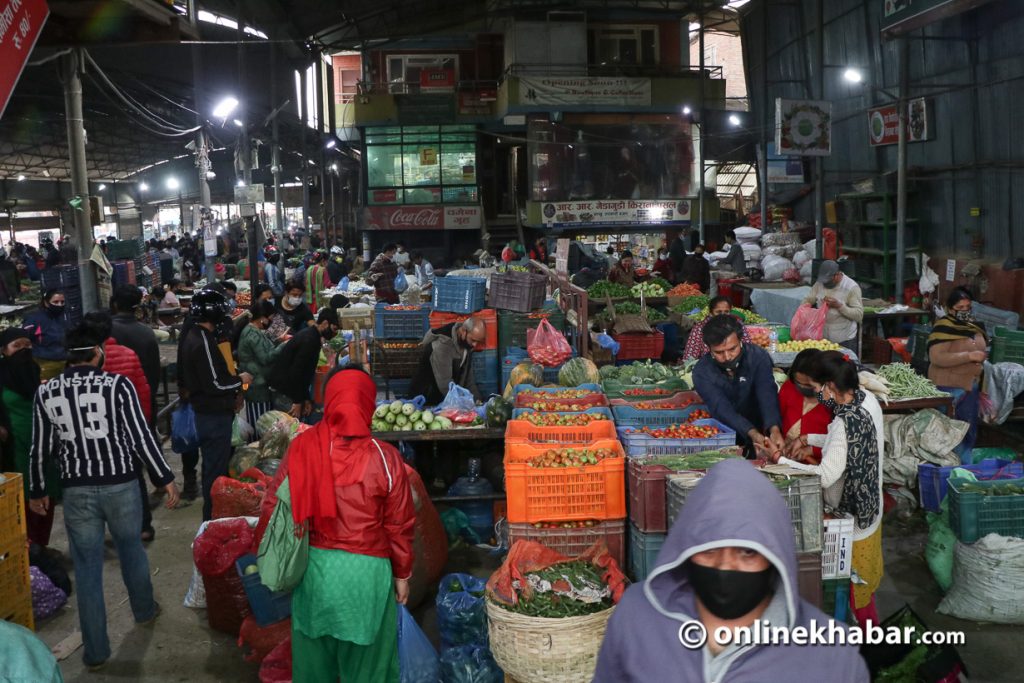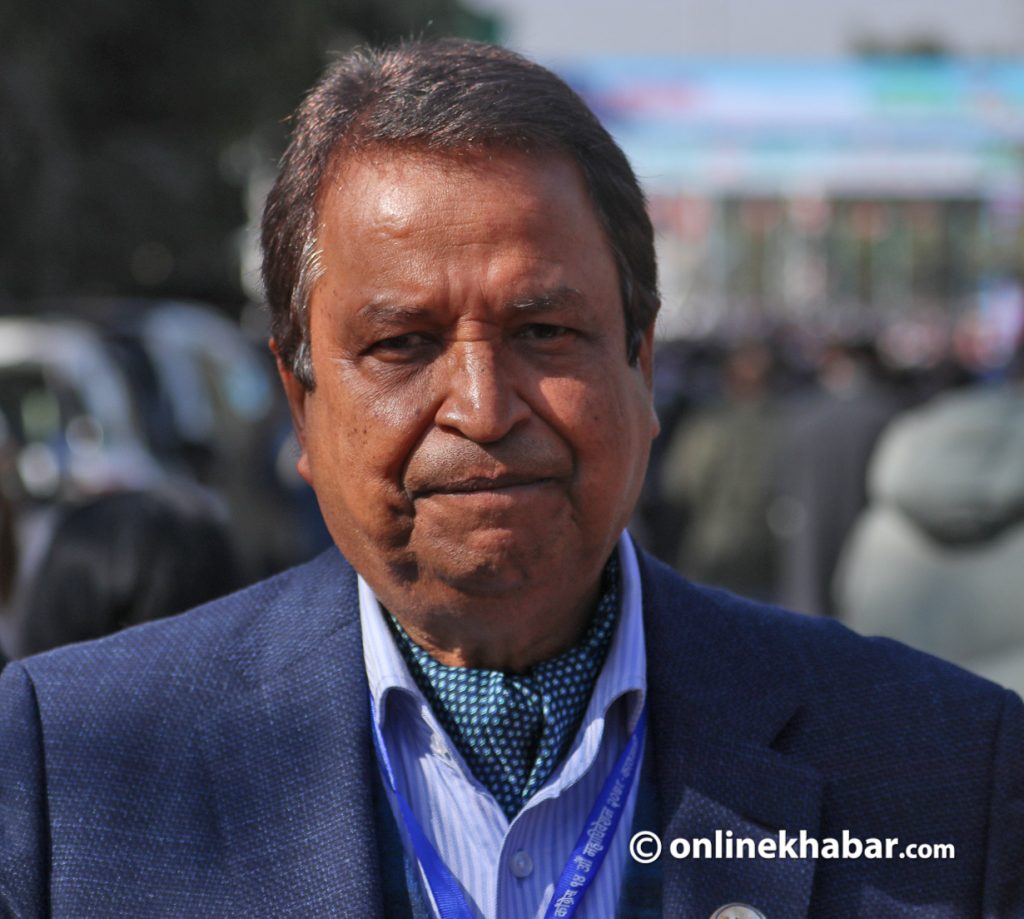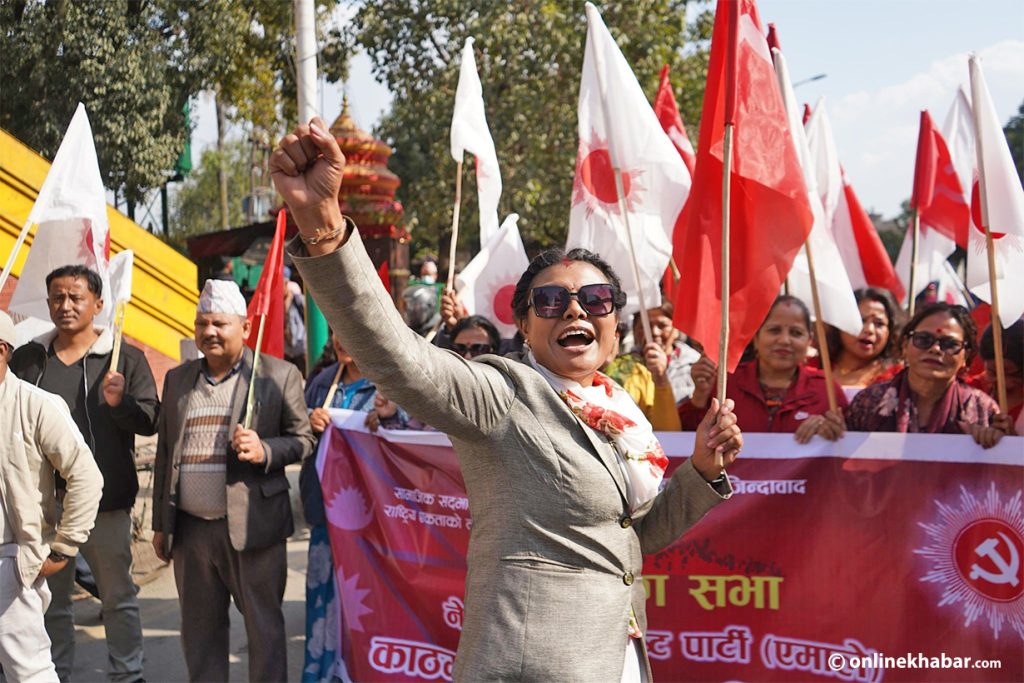
For the past decade, Leela Nepal from Rayobari in Mandandeupur in Kavre, has been supplying 11 litres of milk daily to the government-owned Dairy Development Corporation (DDC). Despite her decade-long association, Nepal has faced payment delays from the corporation in recent years, with the payment cycle stretching from 15 to 50 days. This has created financial uncertainty for her, impacting her daily life.
Due to consistent delayed payments, she is currently exploring alternative options since she no longer thinks supplying milk to the DDC in credit is a good idea.
“How can we sell milk on credit when we buy everything by paying upfront? The DDC has caused a lot of problems for us. I am not alone. Everyone has been affected by the corporation’s inability to pay on time,” says Nepal.
Like Leela, Krishna Prasad Nepal, another dairy farmer of Mandandeupur, shares the same frustration. He has also not been paid on time. Krishna Prasad says DDC has not paid him for over three months. This has resulted in him struggling to carry out regular economic activities.
“All they do is give excuses when we ask for our money,” says Krishna Prasad.
Krishna Prasad also owns a diary cooperative and says DDC owes around Rs 3.5 million to nearly 200 farmers in his cooperative alone. Despite him and other farmers going to DDC demanding their due amount, they are sent back.
“All dairy farmers in the country are facing similar issues. Despite holding talks with them, we have not been paid,” he says.
Where is the money?

According to the Central Dairy Cooperative Association, about three million farmers who are earning their living by selling milk across the country are yet to get paid by the DDC.
Ram Prasad Acharya, general secretary of the association says the DDC has the provision to pay the farmers twice a month, which has not been followed. They have also approached the ministry, yet no action has been taken.
He believes it is unfair that DDC continues to sell milk to the general public without paying the people from whom it purchases milk.
“According to the recent data received from farmers nationwide, the corporation has yet to pay around Rs 500 million to the farmers,” he says.
The government knows this is happening and has held talks with the DDC to facilitate payment. Despite that, the DDC has not paid the farmers.
According to the association, farmers are sending 1.2 million litres of milk to the market daily through various cooperatives. Out of which 200,000 litres of milk are taken daily by various projects of the DDC.
Excuses galore

Sanjeev Jha, the general manager of the corporation, admits there is a problem in paying farmers. He said the corporation was calculating the due amount and said the corporation was struggling financially due to an increase in administrative expenses.
“The corporation’s business cycle has been affected which has impacted the payment cycle. Our administrative expense has skyrocketed in recent years,” says Jha.
The Ministry of Agriculture has also not helped as it has done nothing despite knowing farmers are not being paid. The Central Dairy Cooperative Association Ltd has repeatedly submitted letters to the ministry asking it to help the farmers. Despite all that, Acharya says there has not been a concrete solution.
However, Tapendra Bohora, deputy spokesperson of the ministry says he is unaware of the entire situation.
“I have heard that the payment of the corporation has been delayed, but we have not received any formal complaint about it from the farmers,” he says.
Farmer’s rights

Leaders who work for farmers’ rights have drawn the attention of the government and the corporation to solve the problems of dairy farmers.
Chairperson of the National Farmers’ Commission, Prem Prasad Dangal says it was wrong that farmers had not been paid for over three months. He also urged the government to do something about it as situations like these will discourage farmers from the profession.
“People will quit if this continues. The government needs to act fast,” says Dangal.
Ganesh Timalsina, the coordinator of a collaborative network comprising nine organisations dedicated to farmers’ rights, emphasises the urgency of promptly addressing the challenges faced by farmers.
“The government has been asked to ensure that farmers receive money for milk sales every seven days, but this request has not been heeded,” Timalsina says, “It is disappointing to see ongoing payment delays. This problem should be solved immediately.”
This story was translated from the original Nepali version and edited for clarity and length.
























